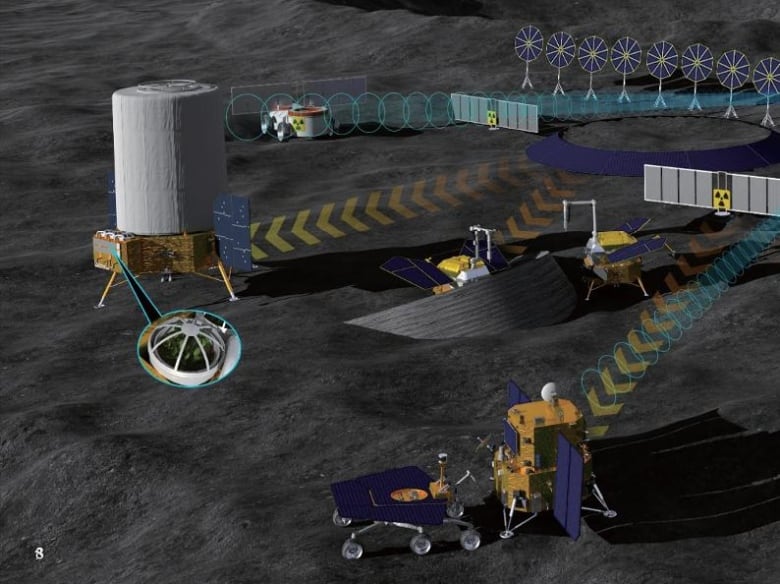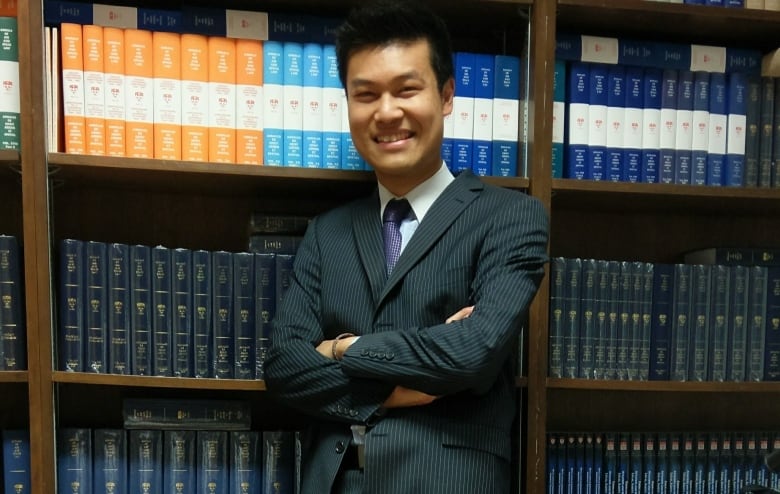People wish to mine the moon. Here is what area regulation consultants say the principles are

Mining the moon may sound like an idea that belongs in a science fiction novel, nevertheless it’s more likely to be part of actuality within the not-so-distant future. That is made it a sizzling matter of debate amongst area legal professionals — sure, there are area legal professionals — on Earth.
When Michelle Hanlon, co-director of the Air and Area Regulation Program on the College of Mississippi, tells folks what she does for a dwelling, she says most individuals are confused.
“Most individuals suppose I am an actual property lawyer — what sort of area do you promote?” she mentioned, laughing. However in actual fact, Hanlon is an skilled within the regulation governing outer area.
There are a number of worldwide agreements governing area, together with The Outer Area Treaty, which was drafted throughout the Chilly Battle and signed by greater than 100 nations together with the US, China and Russia.
That treaty, which states “outer area, together with the moon and different celestial our bodies, isn’t topic to nationwide appropriation by declare of sovereignty,” is what prevents nations from swooping in and declaring possession over the moon.

“You can’t plant a flag anyplace in area and say this now belongs to the US, this now belongs to Russia, this now belongs to China,” Hanlon mentioned.
However in relation to mining the moon for sources, issues get extra difficult. Authorized consultants are engaged on teasing out precisely how that treaty applies when nations — or non-public firms engaged on behalf of countries — begin harvesting sources from the moon or asteroids.
“By constructing a mining operation, some would argue … you are truly claiming sovereignty by one other means,” Hanlon mentioned. “Now we have to be taught to do one thing in area that we have not but discovered easy methods to do on Earth. And that’s: be aware and respectful of one another.”
That shall be put to the take a look at within the subsequent few years, as main space-faring nations race to determine bases on the moon.
NASA’s Artemis mission, which the Canadian Area Company is contributing to, hopes to ship people to the moon by 2030.
This time round, the plan is not only to go to however to remain for good. That features constructing a base camp on the lunar south pole, in addition to a lunar gateway — a spaceship that may orbit the moon.
China and Russia have their very own lunar base in growth, a collaboration between the 2 nations known as the Worldwide Lunar Analysis Station.
As a way to keep away from hauling sources from Earth to maintain these habitats, area applications are hoping to reap sources from the moon’s icy floor. That contains water — important for human life and a supply for gas when damaged down into hydrogen and oxygen — in addition to uncommon earth minerals and helium-3, a possible supply of vitality.
WATCH | NASA is looking for inventors to assist determine moon mining:
NASA has chosen 4 firms to “accumulate area sources” on its behalf and launched a contest for the general public to design, construct and take a look at prototypes to excavate icy moon grime.
“The moon is fairly giant and the moon itself is not going to get crowded, however the areas the place we all know there’s water are going to get crowded,” Hanlon mentioned.
Not the Wild West
Given the observe document of mining on Earth, together with the human toll and environmental damages, there are issues the identical errors shall be repeated when people change into a really space-faring species.
“I do fear at occasions,” mentioned Kuan-Wei Chen, a authorized skilled in area regulation and the manager director of McGill College’s Centre for Analysis in Air and Area Regulation.
“We do not wish to have, once more, the repeat of historical past, when nations and industrial operators go to what they name a ‘new world’ to begin preventing and fascinating in battle over sources.”
That is why, he says, it is as much as lecturers and governments to emphasise that there are legal guidelines governing area.
“Area isn’t a authorized vacuum. It isn’t the Wild West. It shouldn’t be the Wild West.”

To assist information nations by these current frameworks, Chen labored with a workforce at McGill College in addition to a coalition of worldwide consultants to provide a guide on worldwide regulation in outer area.
Given present geopolitical tensions, together with Russia saying it’ll go away the Worldwide Area Station and construct its personal, Chen says it is higher to work with the treaties that exist already reasonably than attempt to get nations to conform to a brand new one.
However the outer area treaty is open to interpretation in relation to mining.
“The regulation says very clearly it is not allowed to acceptable the moon. Now, does that imply you are not allowed to extract and use your sources which might be discovered within the soil or the subsoil of the moon? That is not clear,” Chen mentioned.
Usually agreed: In the event you mine it, you personal it
NASA launched the Artemis Accords in 2020, as what it describes as establishing “a protected and clear surroundings which facilitates exploration, science, and industrial actions for all of humanity to get pleasure from.”
In a press release despatched to CBC, a spokesperson mentioned that “extraction of area sources doesn’t inherently represent nationwide appropriation.”
However Russia and China haven’t signed the U.S.-led accords, and consultants say they’re unlikely to take action.
“Russia and China consider very strongly that the one place you may make area regulation is inside the United Nations they usually see the Artemis Accords as attempting to bypass that,” Hanlon mentioned.
“I feel the US would say we’re not circumventing, we’re simply leap beginning.”
Regardless, Hanlon mentioned the Artemis Accords’ interpretation of the Outer Area Treaty, because it applies to mining, is according to what has been usually accepted. She says that takeaway — which China and Russia have by no means disagreed with — will be summed up as “when you mine it, you personal it.”
As nations inch nearer to establishing a presence on the moon and past, Hanlon and Chen agree there must be extra consciousness about how worldwide regulation applies.
The hope is that nations will respect the present treaties and discover a solution to harvest sources equitably and sustainably.
When people return to the moon subsequent, they’re going to be taking greater than {a photograph}. Legal professionals are reminding governments of the principles in relation to mining sources exterior Earth.
If they do not, or if battle arises, the worldwide group should depend on diplomatic pressures — or there’s the potential to show to the Worldwide Court docket of Justice.
“We have to be sure that no matter we do in outer area and in addition on the moon won’t have a detrimental affect on us proper now, but in addition the long run technology,” Chen mentioned.
“These worldwide legal guidelines … have been drafted with these guiding rules of making certain that area is a peaceable area, and making certain that there’s a sustainable future for the way forward for humankind in outer area, on the moon and on different planets.”





